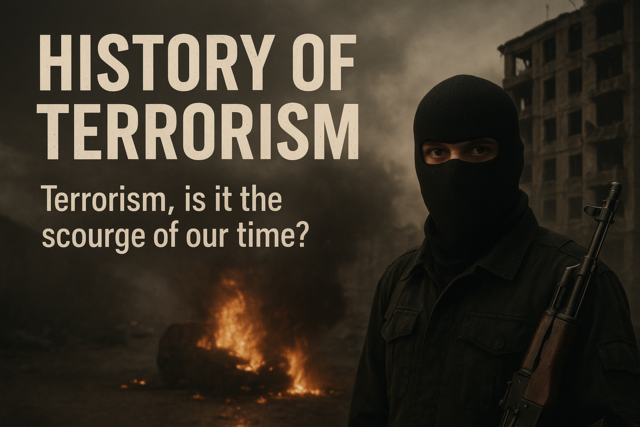Dealing with Witnesses and Family Members
Arriving at a crime scene, crime scene investigators and other law enforcement personnel are oftentimes confronted with distraught and emotional family members, friends and witnesses. In many cases, close family members and friends often try to 'help' the victim by either moving him or her or 'putting the place back in order' before police arrive, for various reasons. Knowing how to deal with extreme emotions and witnesses of a violent death is a necessary part of your job.
Sometimes, even police officers will attempt to try to 'do something' for the deceased, especially if family members are present at the location. This is often the case of suicide by hanging, where crime scene investigators often arrive to find that the victim has been cut down and then laid out on the ground, covered from the view of distraught relatives. However, it is extremely important that the crime scene be left undisturbed until crime scene investigators, technicians and other personnel arrive so that photographs and measurements may be taken prior to disturbing any potential evidence.
The crime scene investigator who arrives at a scene where witnesses are still present may decide to question them or examine skin, clothing and hair, especially in the case of a violent death. As such, it is important that witnesses be separated from the immediate vicinity of the victim to prevent cross-contamination.
A crime scene investigator will often ask witnesses for their version of what happened as well as to attempt to find out more about the victim's actions immediately prior to death. Speaking to witnesses, especially family members and friends, needs to be handled tactfully and respectfully despite the urgent need for information.
A well-trained crime scene investigator will be aware of the psychological impact of the violent death of a family member. Surviving family members are initially in a deep state of shock that may make it difficult to obtain reliable information. At the time, immediate grief is coupled with anger or helplessness. The manner of death also has a large impact on survivors. The horror involved in a rape and murder of a young woman or the attack of an elderly woman in her home will elicit expressions of horror and unbelievable anger from many witnesses. Suicide, murder or death caused by a vehicle accident is more difficult for family members to work through than a natural death, especially if the victim is a child.
The death of a child through murder creates a special challenge to law enforcement personnel and crime scene investigators for a multitude of reasons. For example, officers who first arrived at the scene of the Jon Benet Ramsey incident determined that the child had been moved, not once, but twice, and her remains wrapped in a blanket. Family members had held the child prior to the arrival of crime scene investigators, and nearly all evidence found in the house as the hours passed was determined to be contaminated in one way or another.
While such a reaction from loved ones is understandable, the circumstances in this case eventually made it impossible for the culprit responsible for the death of the child to be indisputably proven and held accountable.
However, it must be understood that the initial reactions of a parent are not to preserve evidence, but to provide comfort to not only their deceased child, but for themselves as well. Dealing with such a range of raw emotions is a challenge for novice and experienced crime scene investigators.
When questioning witnesses, family members or friends of victims, it is important to remain patient and courteous at all times. A show of impatience or lack of concern will only serve to distance witnesses from offering what may be potentially valuable information. Sometimes, this reaction is not deliberate, but is merely a protection mechanism that is adopted by many surviving family members and friends following the death of a loved one. They may feel that what they have to offer in ways of information is not valuable to the questioning officer or crime scene investigator and will hesitate to share such information.
At a crime scene, all investigators must refrain from any conversation or comments that do not pertain to the crime scene. If care is not taken, surviving family members and friends may often hear comments from law enforcement personnel that may be misconstrued. For example, a crime scene investigator arrives at the scene of a murder victim found in his bedroom. Some family members or friends are gathered in a different area of the house. The crime scene investigator sees a colleague he has not seen in a while and they exchange a personal greeting followed by banter or comments that have nothing to do with the present crime scene.
Family and friends hearing such conversation may question the professionalism of the investigators, or even wonder if the death of their loved one is being taken seriously. Damaging relations between potential witnesses and law enforcement personnel at such a vital stage of the investigation is not wise. At all times, keep conversation limited to the task at hand, speak softly so that everyone surrounding the crime scene can't hear what you're saying, and above all, always strive to maintain a professional demeanor when attending to any victim.
Charles Silberman, author of Criminal Violence, Criminal Justice says, "Because they rarely come upon a crime in progress, police depend on members of the public for knowledge that a crime has been committed. They are equally dependent on victims, witnesses and other informants for knowledge of who the offender is and where he might be found."
A former Long Beach, California Police Department Commander suggests the following guidelines when interviewing or questioning any potential witness to a crime. While in most cases, uniformed police officers or detectives assigned to the case will interview or question witnesses, there are times when a crime scene investigator will be required by necessity to question witnesses as well. Knowing the basics of how to accomplish a successful contact between witness and investigator may make all the difference in the resolution of a case.
The key points to remember in any interview are to:
- Develop a plan of action. The interviewer should review pertinent data and develop questions that will elicit the information required to complete the task at hand.
- Question witnesses separately, if possible. In addition, try to minimize distractions during the interview.
- Initiate a non-threatening approach to all witnesses. Emotions and stress can have a big impact on any witness-law enforcements personnel interview or questioning. Use a calm approach and try to set the witness at ease.
- Let the witness talk. One of the biggest mistakes any investigator can make is to talk too much. Let the witness speak, guiding the questioning when necessary.
- Ask the right questions. Knowing how to ask questions is as important as knowing what questions to ask. Make questions easy to understand.
- Don't ask Yes or No questions. For example, when interviewing a witness to a crime, the investigator may ask the witnesses to relate in their own words what they saw.
- Listen! A good investigator is also a good listener. Focus should be on what is being said rather than how it is being said. In addition, it is important for investigators to wait until the witness has offered information before beginning to analyze it.
- Keep Your Emotions Out of the Questioning Process. Investigators need to refrain from expressing personal opinions and feelings during any interview process.
- Keep note-taking brief. While note taking allow an investigator to jot down key information during any questioning or interviewing process, it may prove detrimental if he or she constantly loses eye contact with the person. A good investigator needs all the senses to note and gauge reactions by a witness.
- Write a summary. As soon as possible following the questioning process, it is wise to write a summary or detailed description of the statements made by a witness, especially when more than one has been questioned about a particular incident.
In many cases, family members and friends will want to know information about the death of their loved one. At times, it is difficult to know what information can be released and what can't. Oftentimes, information must be contained in order to help crime scene investigators and other law enforcement personnel to eventually capture the perpetrator.
In such cases, family members may express anger or impatience against those in charge of the crime scene. Each case is different, and crime scene investigators must follow proper procedure and protocol when it comes to the release of any information from the scene. In such cases, it is best for the crime scene investigator to refer the family member to the supervising scene officer or investigator for information.
























